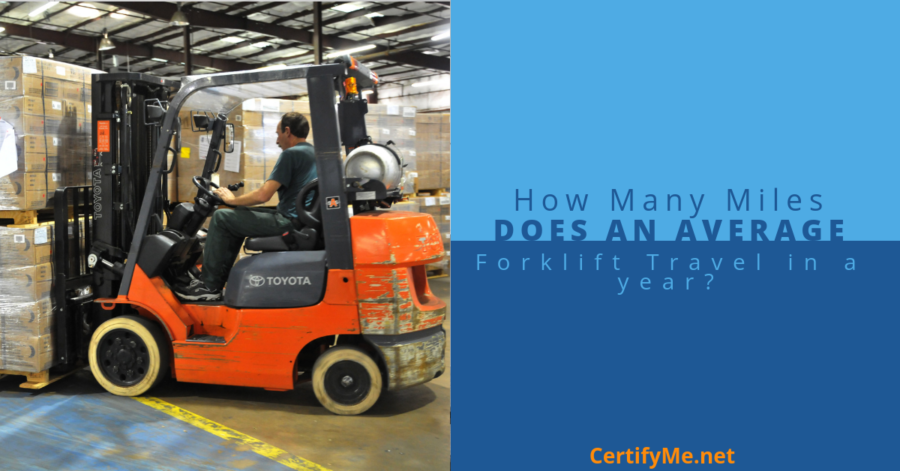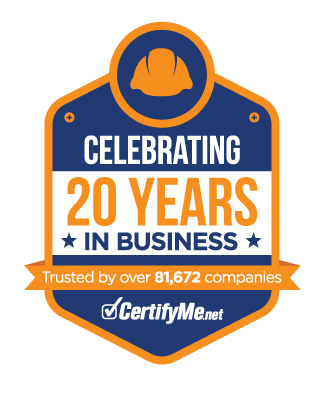How Many Miles Does a Forklift Travel Per Year? A Guide to Forklift Engine Hours and Lifespan
Posted by: admin on April 18, 2025

Operating a forklift involves more than loading pallets and moving inventory. Understanding forklift mileage and engine hours is critical for maximizing equipment lifespan, improving safety, and reducing operating costs. Since forklifts don’t use odometers like cars, tracking hours is the industry standard. For businesses looking to extend their forklift lifespan, it’s essential to monitor hours closely, stick to a strict maintenance schedule, and know when replacement becomes the smarter choice.
How Forklift Usage Is Measured: Miles vs. Hours
Forklifts do not measure distance traveled in miles. Instead, forklift wear is recorded in hours of engine use. This approach mirrors how construction equipment and agricultural machinery track lifespan.
Typically, one hour of forklift operation equates to around three miles of driving in car terms. Given an eight-hour shift five days a week, a forklift averages about 2,000 hours annually.
Average Miles and Engine Hours for a Forklift
On average, a well-maintained forklift will last between 10,000 and 20,000 hours. That range equals roughly five to ten years of service life under normal working conditions. Frequent overtime or harsh environments will shorten this estimate.
Electric forklifts tend to rack up more hours before replacement due to fewer mechanical parts compared to internal combustion (IC) models.
Key Factors That Impact Forklift Lifespan
Type of Engine
Electric forklifts often outlast their internal combustion counterparts because of reduced moving parts and less frequent maintenance demands. IC forklifts may require more intensive servicing to reach similar longevity.
Environment and Usage Conditions
Smooth, indoor environments support longer service life for forklifts. Outdoor operations across rough terrain, exposure to extreme cold, or heavy multi-shift use accelerates wear and tear dramatically.
Regular Forklift Maintenance
Daily inspections combined with weekly and monthly servicing double forklift longevity. Ignoring small mechanical issues leads to breakdowns, expensive repairs, and shortened operational life.
Building a Forklift Maintenance Checklist
Daily Tasks:
- Inspect tires for damage or wear
- Check brake functionality
- Verify fluid levels
Weekly Tasks:
- Inspect forks for cracks or bends
- Check mast, hydraulic lines, and lift chains
Monthly Tasks:
- Service battery on electric models
- Change oil and check filters for IC engines
Following a structured maintenance plan prevents costly downtime and keeps equipment OSHA-compliant.
When to Replace a Forklift: Signs to Watch
A forklift nearing retirement will show warning signs beyond just age:
- Maintenance and repair costs start exceeding replacement value
- Frequent downtime affects daily operations
- Decreased fuel efficiency and overall performance
- Persistent mechanical failures despite servicing
Tracking total operational costs helps businesses determine the ideal replacement threshold before losses pile up.
FAQs About Forklift Miles, Hours, and Maintenance
How long does a forklift last in hours?
Most forklifts provide reliable service for 10,000 to 20,000 hours with consistent maintenance and proper use.
Can you track forklift mileage?
Forklifts track hours rather than miles. Usage is typically recorded via onboard hour meters, providing a more reliable maintenance indicator.
What extends forklift life?
Daily inspections, consistent adherence to a maintenance plan, and operating forklifts within their rated capacity dramatically increase service life.
How does environment affect forklift usage?
Extreme temperatures, rough surfaces, and outdoor conditions accelerate wear, reducing the total lifespan compared to indoor warehouse use.
Extend Forklift Lifespan with CertifyMe
Keeping your forklifts in peak condition begins with a trained workforce. CertifyMe offers fast, OSHA-compliant online forklift certification to help companies reduce accidents, minimize repair costs, and improve forklift performance. Operators trained with CertifyMe know how to spot early warning signs, maintain equipment properly, and operate safely — all with 24/7 course access, instant proof of training, and free three-year renewals.
Welcome to CertifyMe.net
CertifyMe.net has offered online forklift certification since 1999. With Our Convenient online program. your employess can earn their certification in an hour or less.
Browse Online Certifications:
This low-cost program can be compeleted anytime, anywhere!





